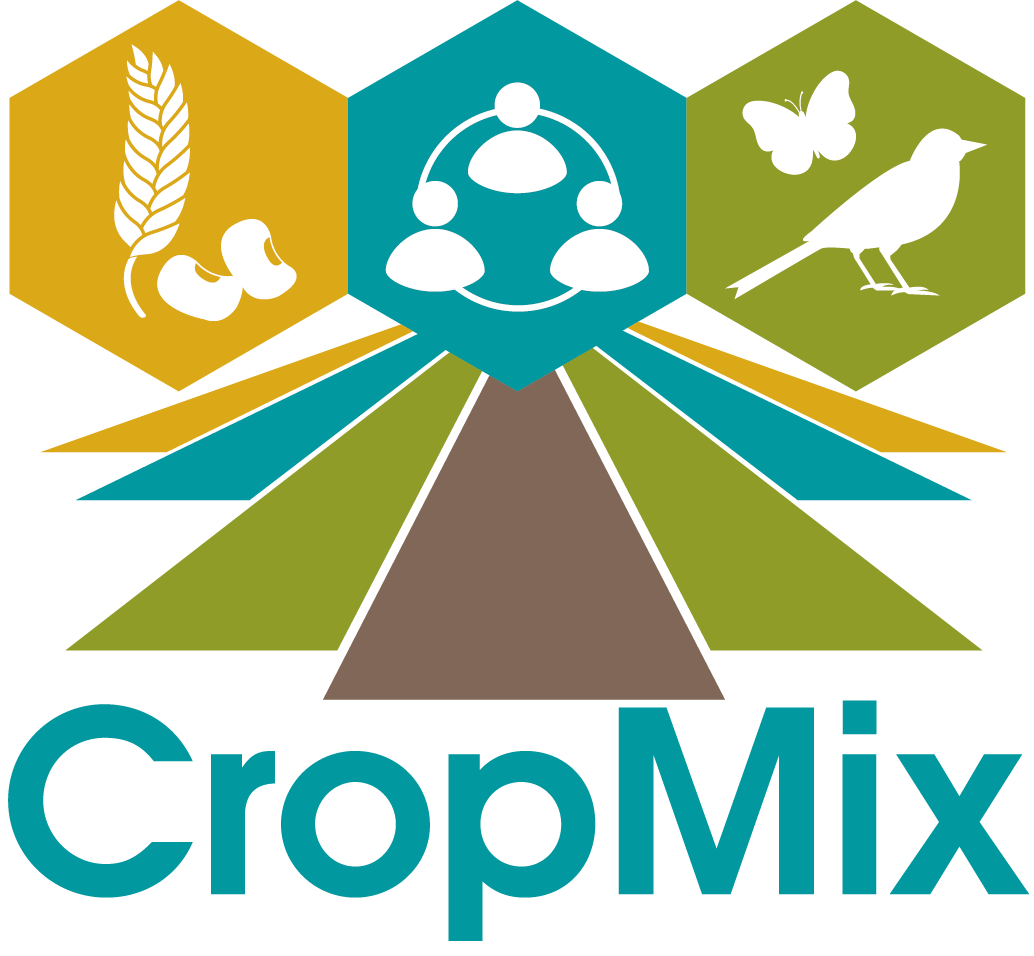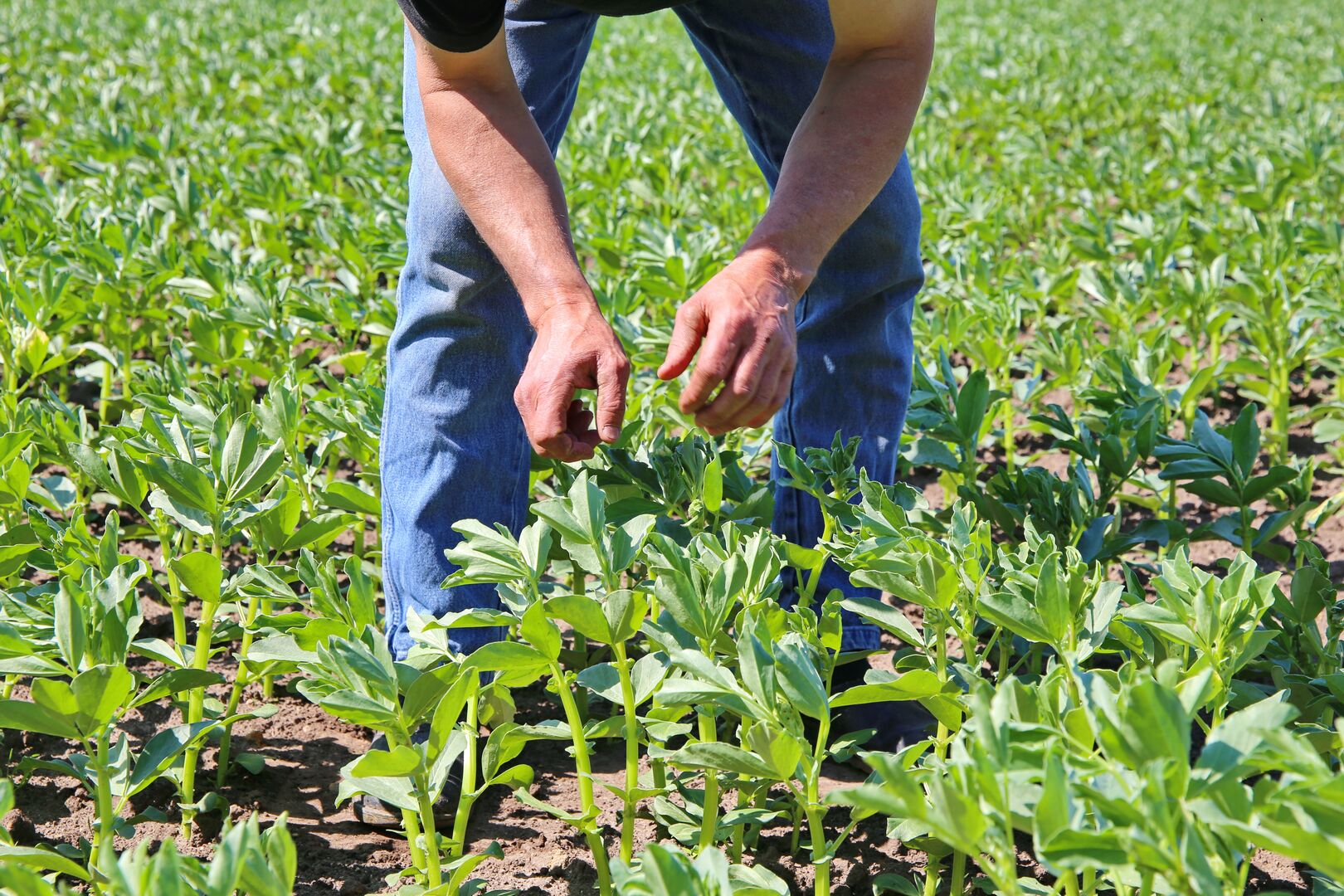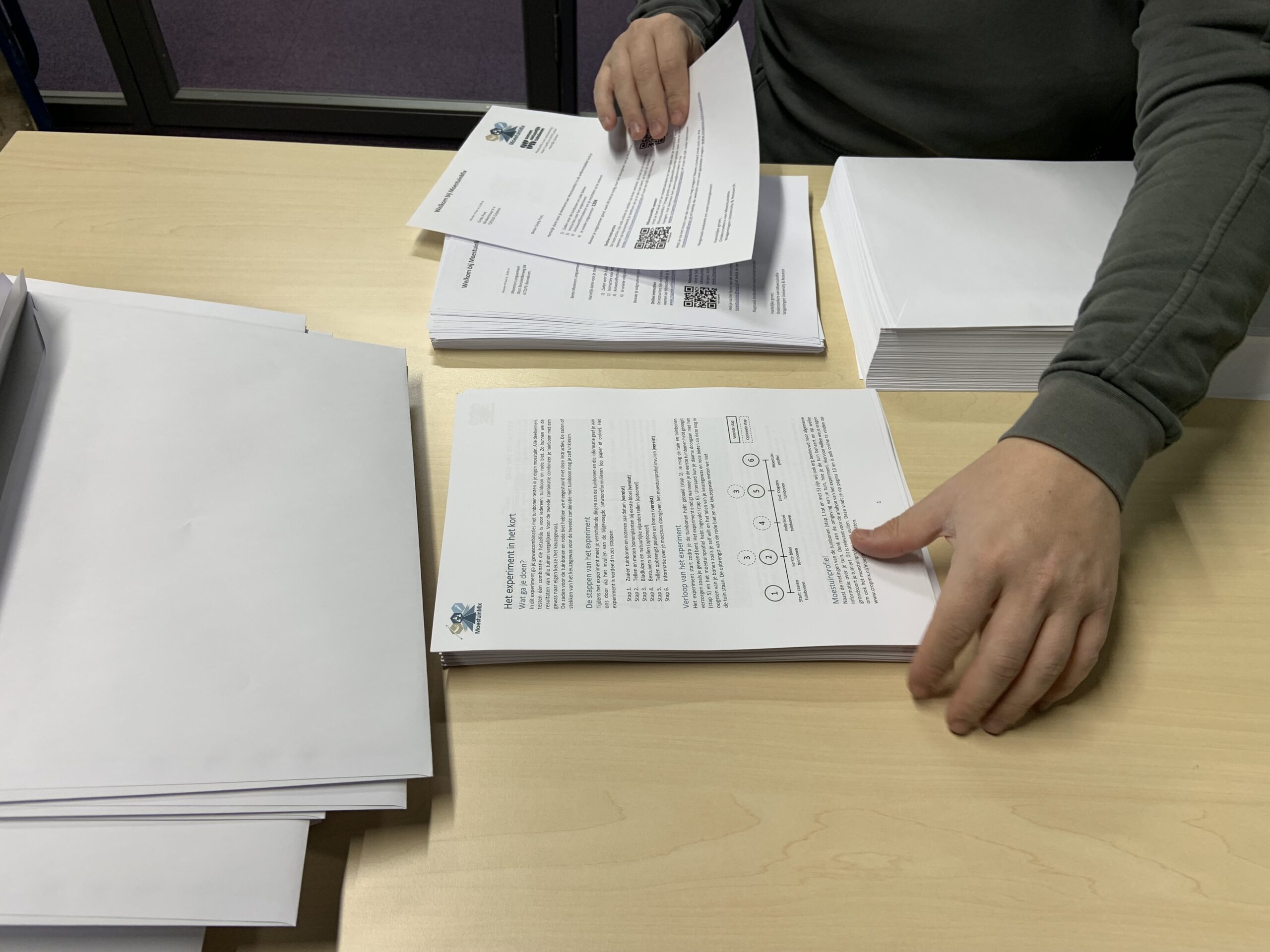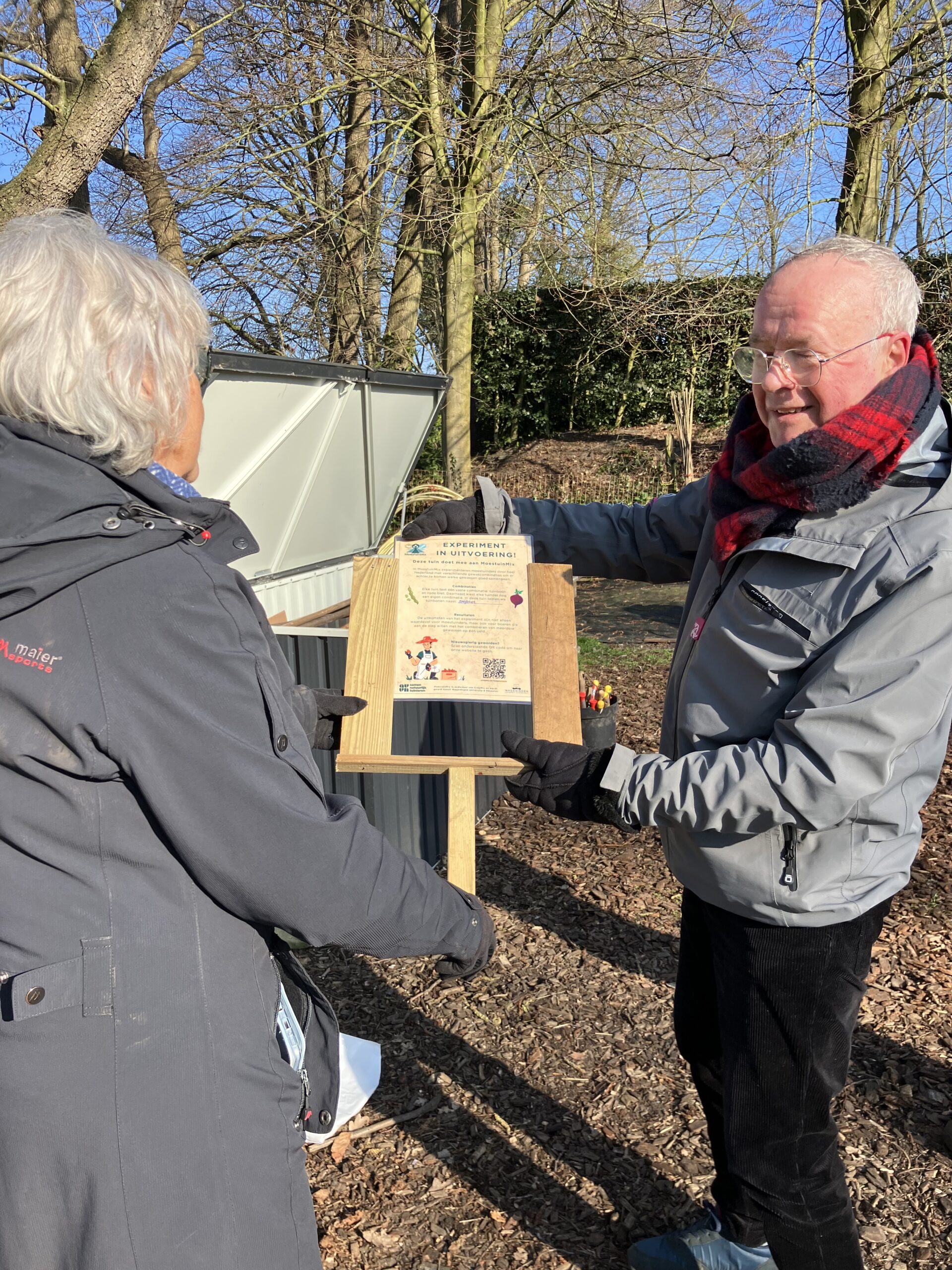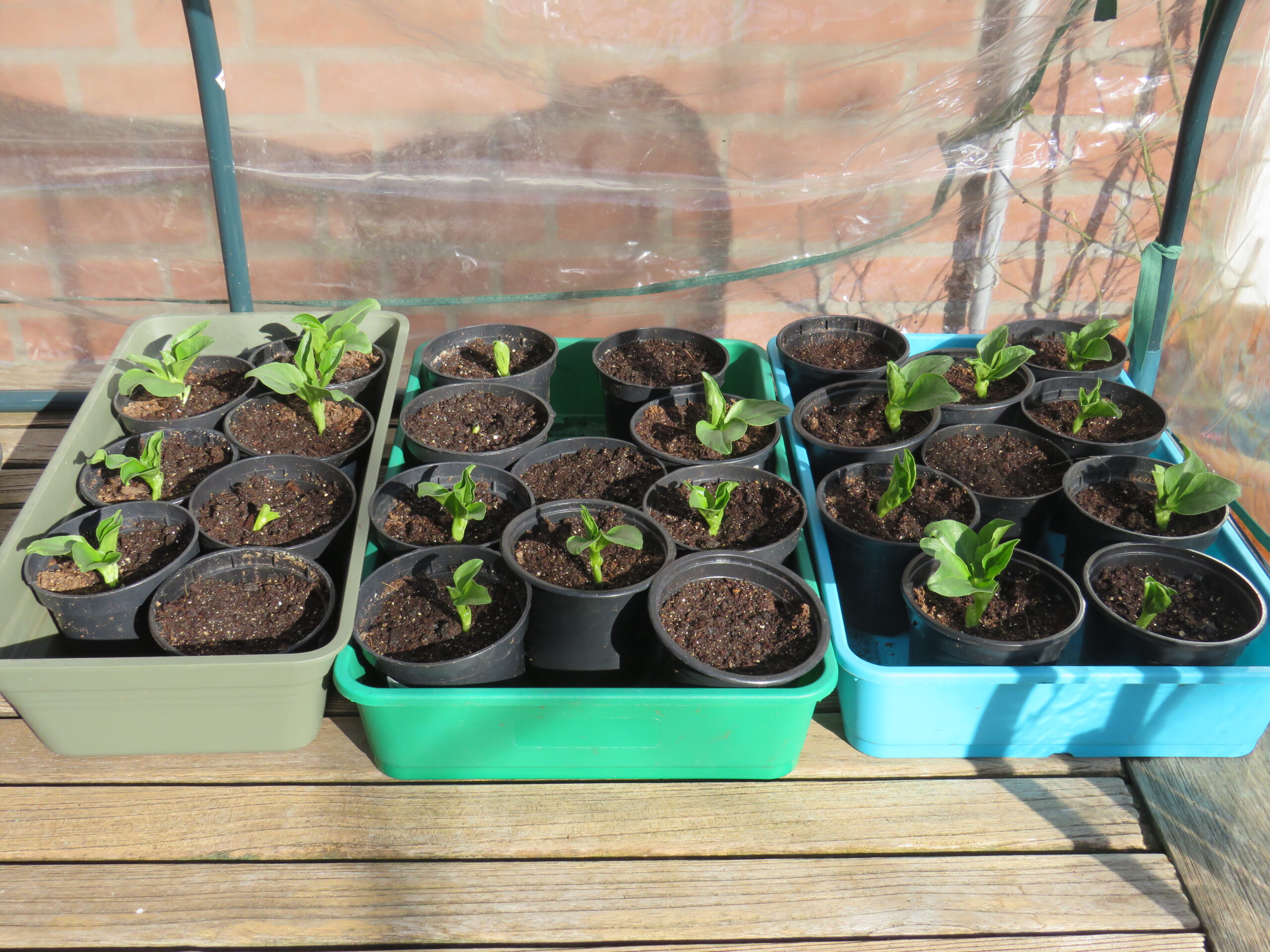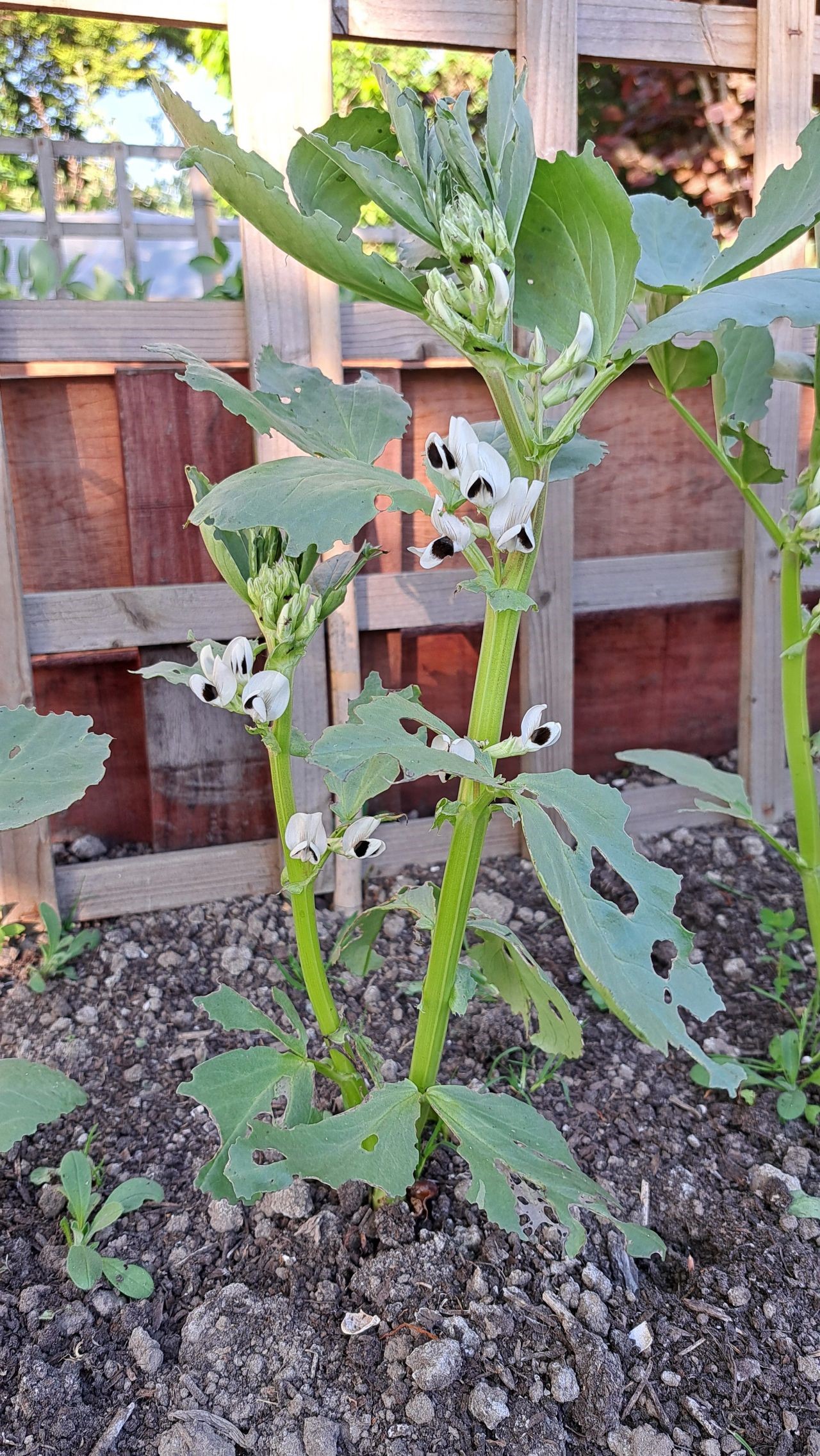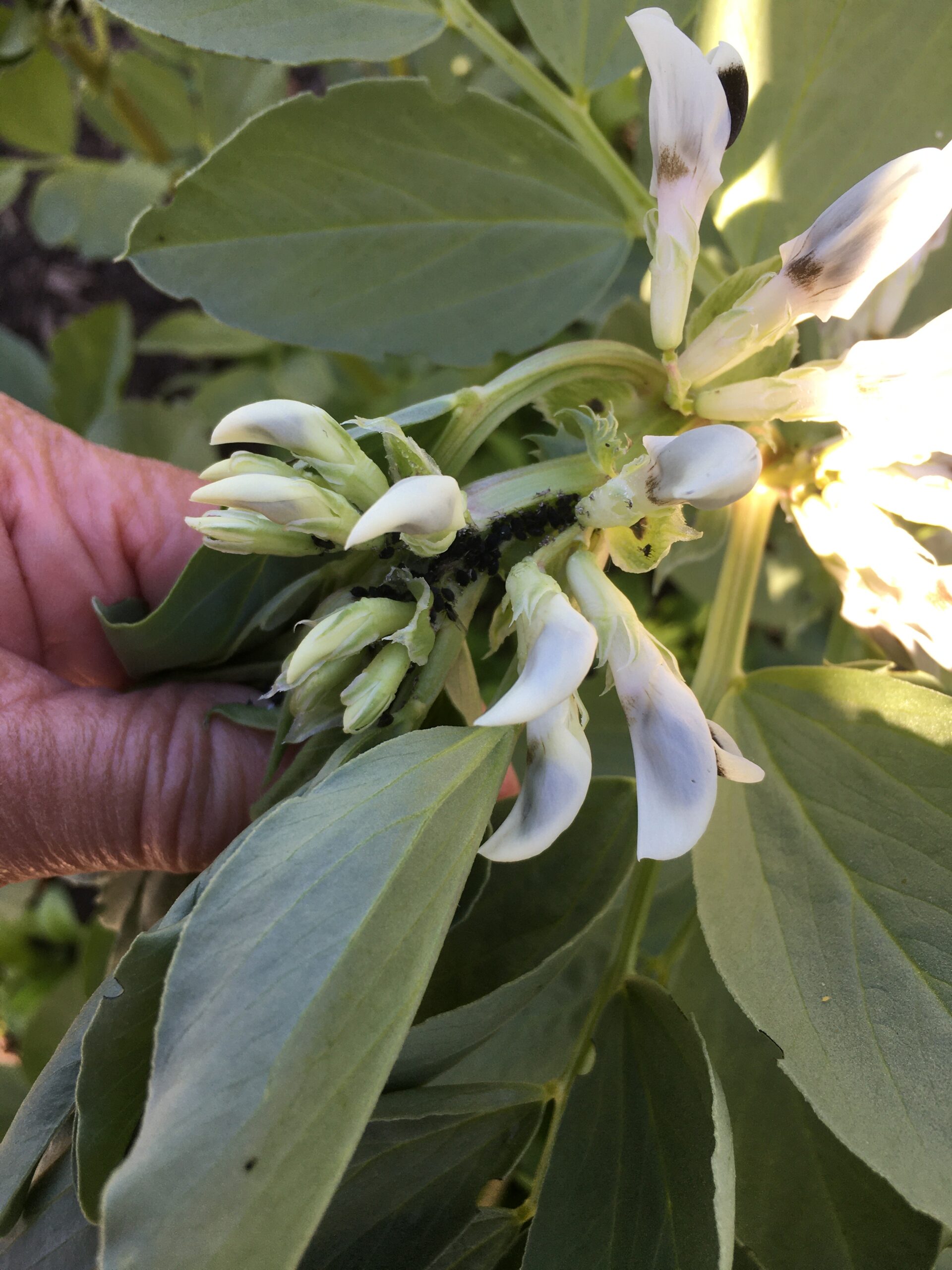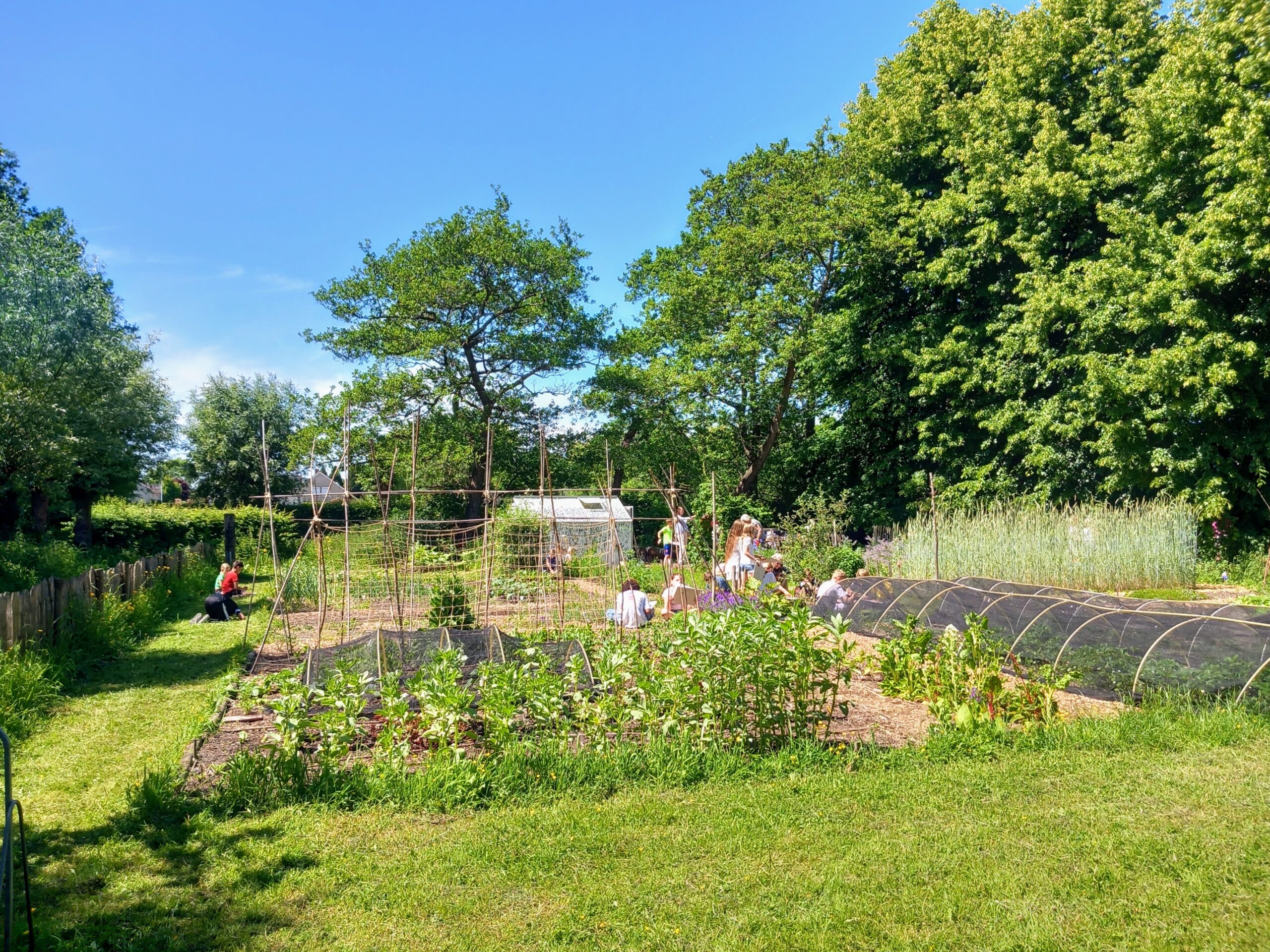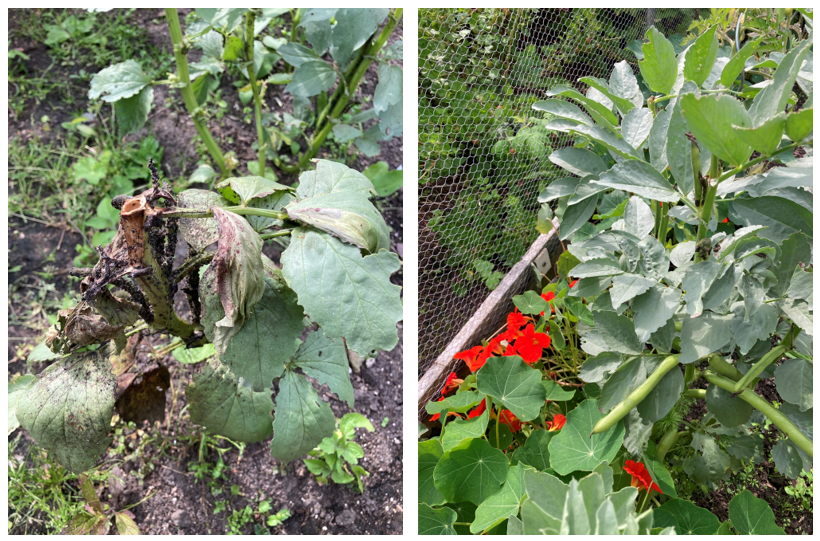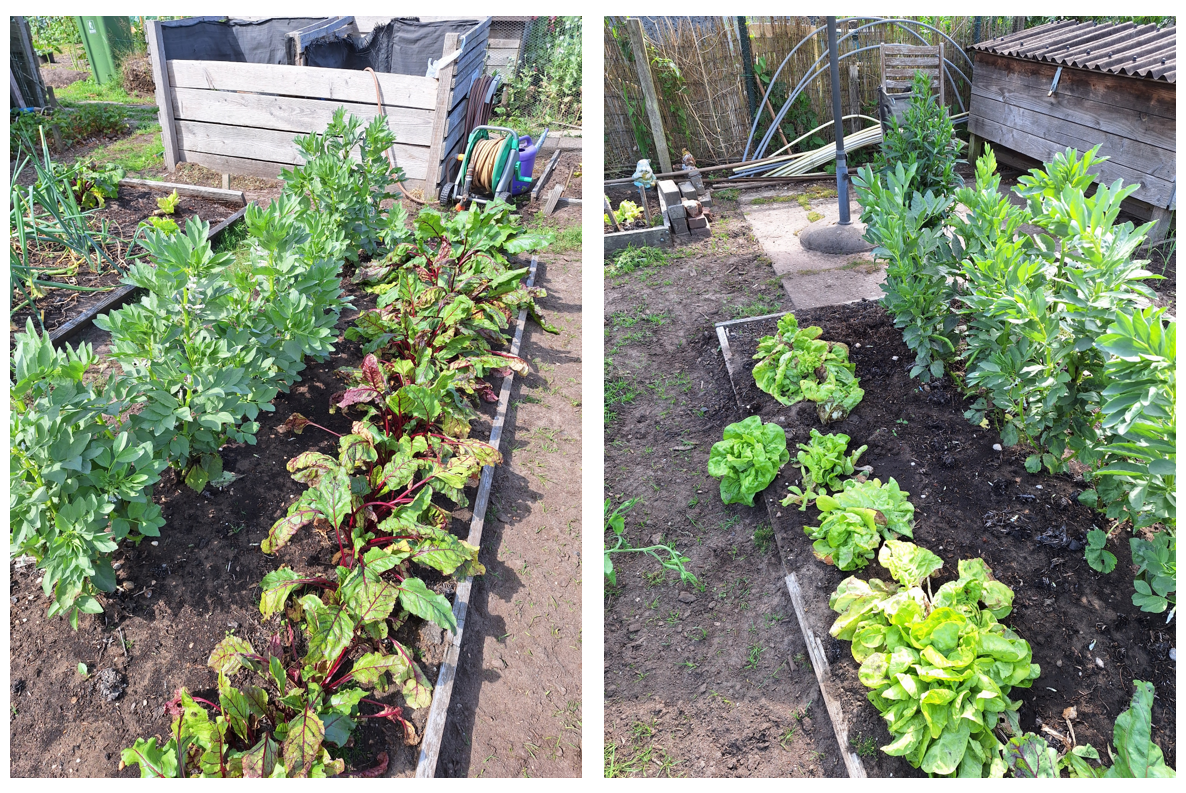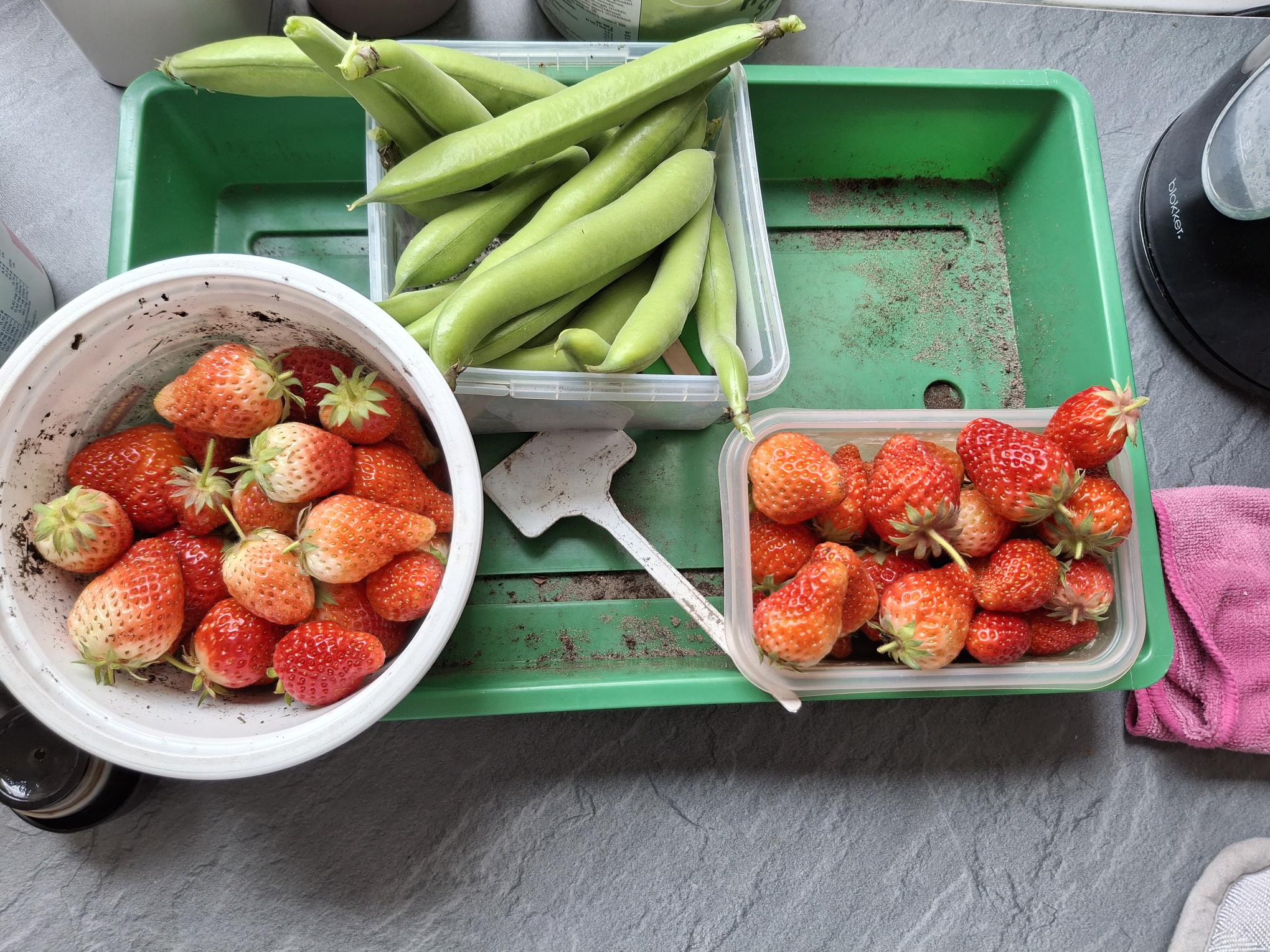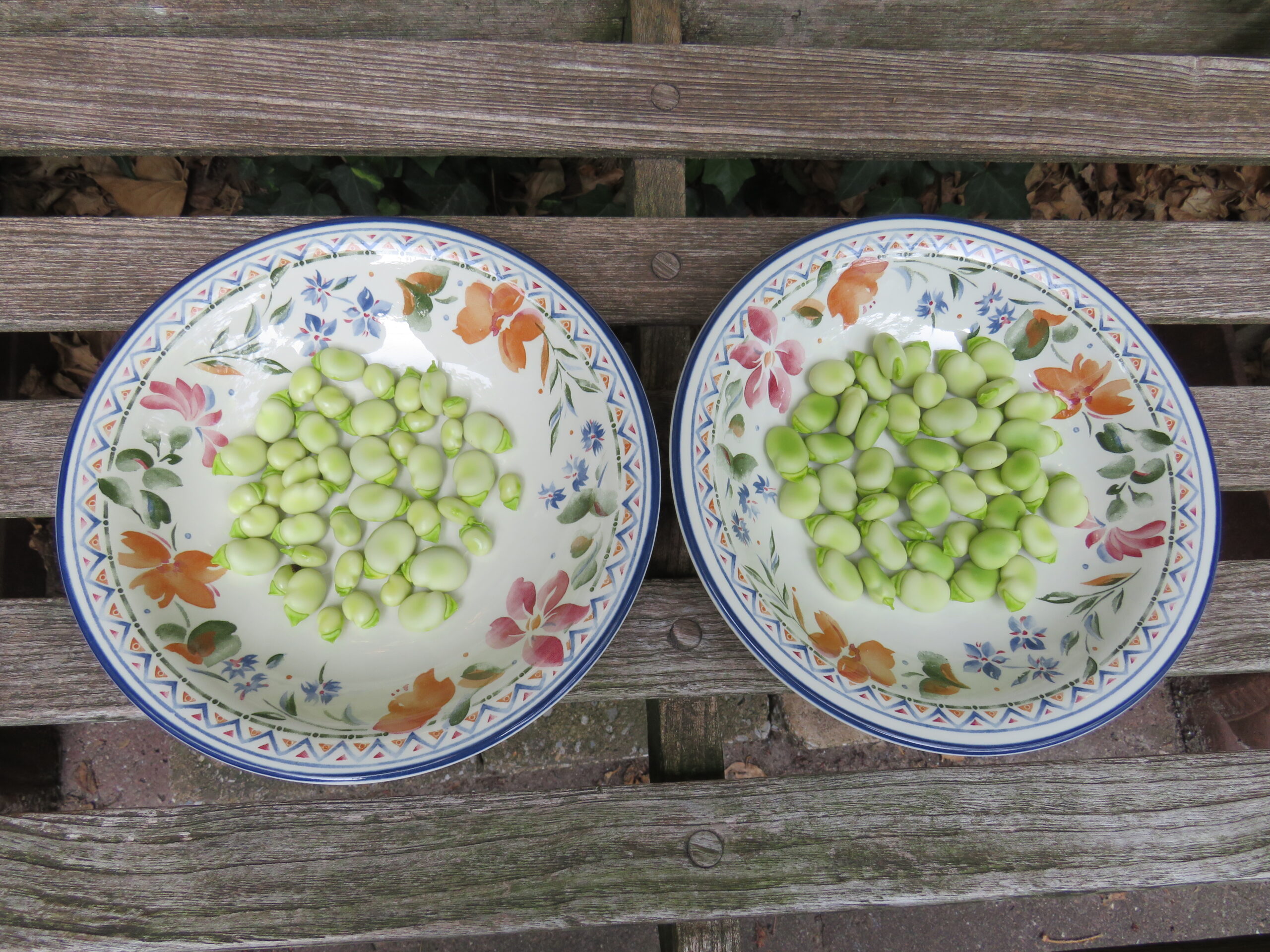How can we sustainably produce food in the Netherlands in the future? That question is central to CropMix, our five-year research programme in which more than 70 scientists and 25 arable farmers work together. The focus is on crop diversity: combining different crops in one field, for example through strip cropping. This promotes biodiversity in fields and can help us become less dependent on pesticides.
A frequently asked question from arable farmers considering strip cropping or other forms of mixed cropping is: which crops go well together? To find out, this year, we enlisted the help of experienced and inexperienced vegetable gardeners for the second time to test different combinations in their own vegetable gardens.
New season
In 2026 we will start the third season of our experiment! Would you like to join or are you curious? Check out our sign up page or sign up directly through the button below.
Results 2025: Dry, but good year for broad beans
Last year, many participants once again shared photos of their experiments. Below is a small impression of the 2025 season. Want to know what we found? Check out the results page!
Season 2024: Slug invasion and first results
It will not have escaped anyone's notice, 2024 was a very wet year, giving slugs free rein. Due to the heavy rainfall, many vegetable gardeners suffered from the slimy crawlers that ate their (young) plants. For those vegetable gardeners whose broad beans had withstood the slug plague, the next plague was already on the way: aphids. Fortunately, the aphids also attracted natural enemies such as ladybirds, as in the photo below, which we received from a participant.
Many participants were able to participate in the experiment and test crop combinations despite the difficult year. The first results are in. Read more via the button below.
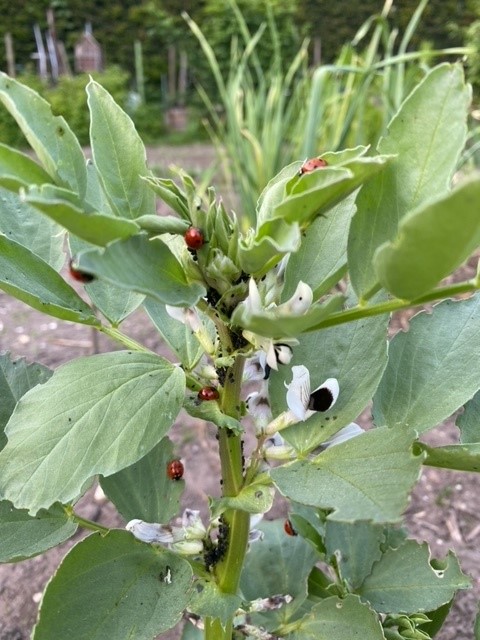
Photo: Broad bean plants with aphids and lady bugs from a participant from Arnhem.
Background of the experiment
In the Netherlands, we have a very efficient food production system, but this system is reaching its limits. The current system, mainly based on large fields with one crop (monoculture), has given us great advantages in terms of food production, but many people are becoming increasingly aware of the negative impact of this agricultural system on nature. It causes loss of biodiversity and has made us dependent on fertilisers and plant protection products, which can be harmful to both people and nature. Moreover, growers often get low prices for their produce and their remuneration is often disproportionate to their work.
Transition to more crop diversity
To enable the transition to more sustainable, ecology-based agriculture, some 70 scientists from different fields, 25 arable farms and over 30 chain partners and interest groups are joining forces. In CropMix we are studying arable systems that focus on crop diversity, such as strip cropping, where strips of different crops grow side by side. This promotes biodiversity in fields and can help us become less dependent on fertilisers and pesticides. This is because, for example, one crop attracts the natural enemy of the other crop's pest and diseases are less likely to spread through a field.
But how does such a crop-diverse system work and what are its advantages and disadvantages? That is what we are investigating over the next five years with ecologists, agronomists, economists and social scientists. They investigate ecological processes in the fields, but also look at logistics and earning models, and study the roles of different partners in the food chain, including consumers.
What is the best crop pair?
A common question from growers considering strip cropping or other forms of mixed cropping is: which crops go well together? Answering that question requires testing lots of combinations, but we don't have enough time and space to test all the interesting combinations on the university's trial fields. Moreover, we cannot dictate to our participating growers what they should grow.
Fortunately, there are many people in the Netherlands with vegetable gardens and valuable experience who can help us. Vegetable gardens almost always grow different crops next to and through each other, making them ideally suited for testing different crop combinations. That is why we ask vegetable gardeners throughout the Netherlands to help us test crop combinations and help arable farmers on their way. With this citizen science we collect a lot of valuable data from different environments, such as soil type and landscape, in a short time.
The experiment
MoestuinMix participants are testing different crop combinations with broad beans. Last year, participants tested the combination broad bean with pumpkin and a combination of broad bean with a crop of their own choice. This year, we are testing the combination broad bean and red beets and the second combination is again garden bean with a crop of your choice. Our aim is to find out which combinations promote the cultivation of broad beans and which processes ensure this, such as growth and resilience.
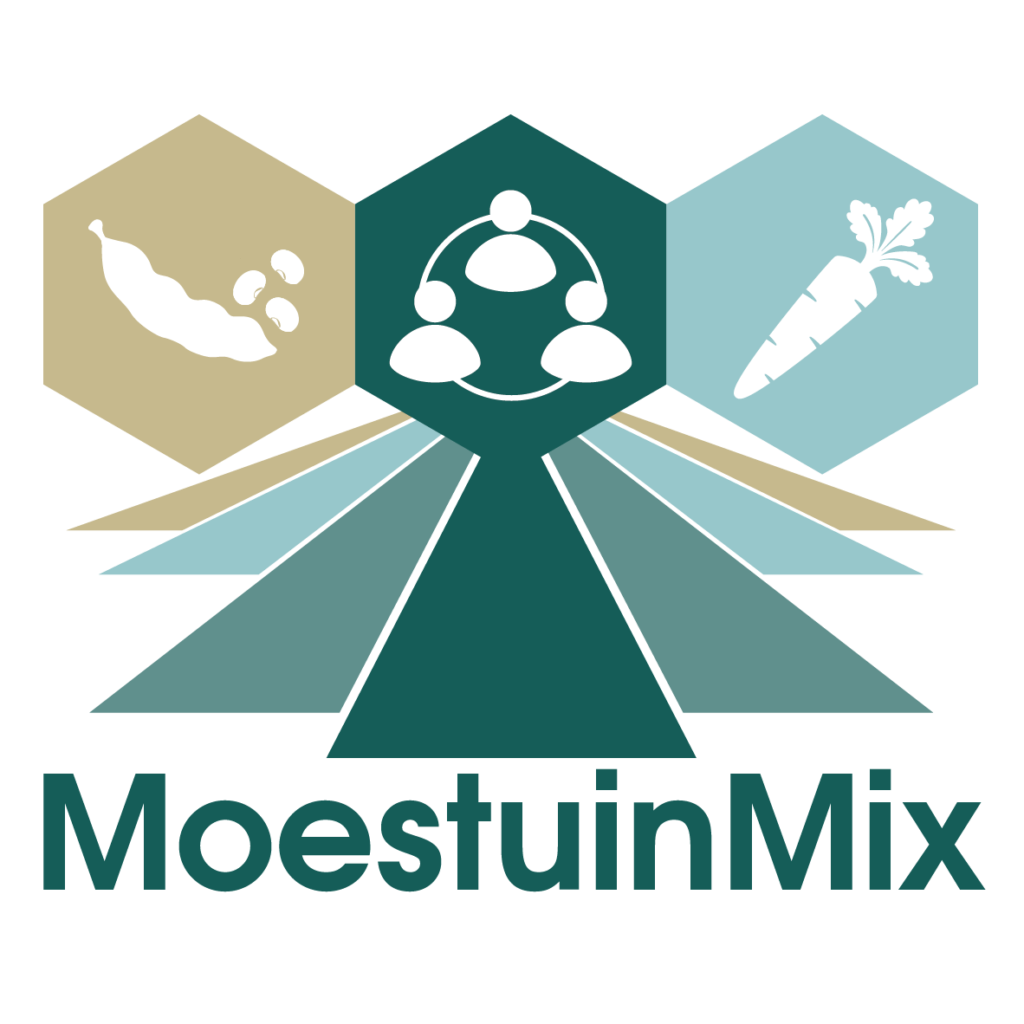
MoestuinMix is a citizen science project in which non professional vegetable growers and gardeners experiment with different crop combinations.
In collaboration with

About AVVN
Since 1928 we root with our hands in the earth and stand up for the interests of allotment holders. The letters AVVN stand for Algemeen Verbond van Volkstuindersverenigingen in Nederland. We are now called AVVN together natural gardening. Why? Our family has grown considerably over all these years. Today, we help anyone with a green heart with natural gardening. Whether that is in you back yard, a community garden or an allotment garden. We share our green knowledge an make gardening together even easier and more fun.
More information
Would you like to know more or do you have questions? Please contact us via moestuinmix@wur.nl.
About MoestuinMix
MoestuinMix is part of CropMix. A five-year research programme on ecology-based agriculture. The CropMix-consortium consists of a large number of partners and educational and research institutions.
Wageningen University & Research coordinates CropMix and the experiments in MoestuinMix.
For news and updates, follow CropMix on LinkedIn
MoestuinMix is a collaboration between CropMix and AVVN samen natuurlijk tuinieren.
